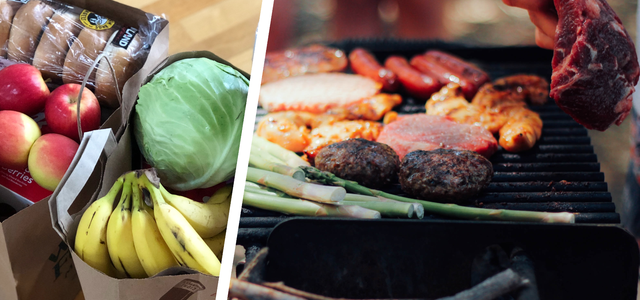
During the heat in Germany, the risk of bacteria and fungi spreading to food increases. However, with a few tips this can be avoided. If you still contract food poisoning, there are a few things to consider.
In Germany, one heat wave follows the other. As temperatures rise, so does the risk of foodborne infections, because bacteria and fungi thrive in warm, humid conditions. To keep food safe for consumption in hot weather, transportation, storage and preparation are critical.
In a press release, the German Society for Digestive and Metabolic Diseases (DGVS) eV gives tips on how consumers can reduce the risk of bacteria in food. The DGVS also provides information on when food should no longer be eaten and what steps people who have contracted mild food poisoning can take.
Tips from the DGVS on the transport, storage and preparation of food when it is hot
In order to protect yourself from bacteria in food, which multiply rapidly in the summer heat, the DGVS gives the following tips:
-
Animal products and frozen goods should be transported home in a cool bag to prevent bacteria from multiplying.
- Bacteria spread at temperatures as low as 4 degrees Celsius. Therefore, meat should be stored in the coldest part of the refrigerator.
- If you are not sure whether meat, fish or poultry is still edible, you should not eat it.
- Dairy products should be discarded if they smell or taste inedible.
- Special care should be taken when grilling outdoors in hot weather. Food hygiene must not be neglected here. If plant-based foods come into contact with meat, dangerous bacteria can also multiply on the plant-based foods.
- Foods containing raw egg should not be left outside in the heat for a long time. These include mayonnaise or tiramisu.
What should be done if you have mild food poisoning?
Despite all caution, it can happen that people eat spoiled food. Symptoms of mild food poisoning include nausea, vomiting, and diarrhea.
dr medical Birgit Terjung, chief physician in the department of internal medicine at the GFO Kliniken Bonn and media spokeswoman for the DGVS, explains in the press release that in most cases the symptoms disappear on their own after one to three days. If they last longer, it may make sense to seek medical advice. According to Terjung, people who belong to a risk group should also do this – i.e. infants, children, pregnant women, the elderly or people with a weak one
Immune system. According to the DGVS, the main problem is the high loss of fluids, which is associated with the symptoms of food poisoning.
The DGVS gives the following tips for nausea, vomiting and diarrhea:
-
Drink enough fluids, such as water or herbal teas. These can be: peppermint tea for nausea, fennel-anise-cumin tea and chamomile tea.
-
Solid food should only be eaten again when the affected person is no longer throwing up. Broth or salted teas can be drunk in small sips.
- Sick people should slowly introduce solid food after the acute phase. Oatmeal, rice, white bread or potatoes are suitable to start with.
-
Medicines for diarrhea or vomiting should not be taken on one’s own initiative. The body’s reactions serve to eliminate toxins and pathogens. Medications can stop the natural process and prolong the disease.
-
Cola drinks are said to be helpful in gastrointestinal diseases. However, the DGVS advises against this. They are liquid suppliers, but contain a lot of sugar.
Source used: German Society for Digestive and Metabolic Diseases (DGVS) eV
Read more on Techzle.com:
- Up to 48 degrees: Europe is threatened with unprecedented heat
- Again salmonella in Ferrero factory: production stopped in Belgium
- Danger of heat: These federal states are failing when it comes to civil protection